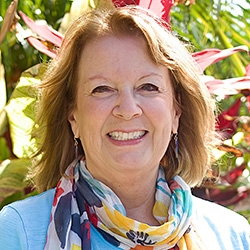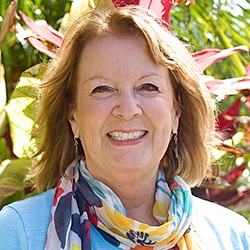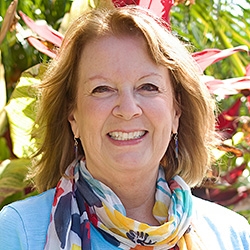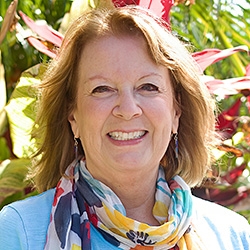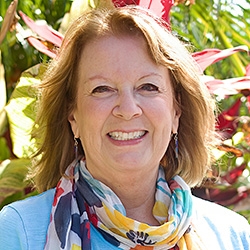

Search Results: connection
-
Trainer Tip: Empathy is a process in which we acknowledge and understand others' experience without judging or bringing up our own life experience. It can defuse a violent situation and anger in seconds, plus provide a clarity that catapults someone to a deeper level of understanding. The process is simple; listen for their feelings and needs. It can be healing for them to be deeply understood.
-
Trainer Tip: Ask someone what they enjoy about you being in their life. For example, “Would you tell me 3 specific reasons you enjoy having me in your life?” To a vague reply like, “Oh, you know I love you. I just like spending time with you.” Or, “You’re one of my best employees!” ask for more specificity (eg. “Can you tell me what I do and what needs it meets that makes me one of your best employees?”). This may reveal more to both of you.
-
Sometimes I hear people say things like, “I didn’t do Compassionate Communication this week.” Or “I tried Compassionate Communication when I was arguing with my wife last week.” Compassionate Communication is not a thing to do, or to pull out of our bag of tricks once in a while. Compassionate Communication is a consciousness of valuing everyone’s needs and of valuing connection more than being right, winning or protecting ourselves. It is a way of living.
-
Deepen your connection to life, nurture inner healing, and live more compassionately.
-
Judgment is an attempt to protect from hopelessness or insecurity, at high cost. Instead, check in with fear, grief, or hurt. Then wonder what needs are at stake for everyone. This makes space for grief instead of anger, for negotiation rather than control, and for "calling in" rather than excluding. Wonder: “For whom would this be life-serving or not?”, “What strategies would care for all needs?” or, “What can I contribute now?”
-
In a workshop, a hesitant white neurodivergent man faced a triggering reaction from a Global Majority transgender man. Uncovering their backgrounds, the facilitator addressed family dynamics and exclusion. A repair exercise fostered empathy, challenging assumptions and emphasizing the importance of equitable facilitation for a richer group experience.
-
Read how an American Buddhist NVC teacher with Jewish roots reflects on how any dehumanization in the Israel-Hamas conflict can be used to justify all kinds of violence that can escalate for generations. With acknowledgment of the complexities, his desire is for us to bring in respect, dignity and peace -- for both Israelis and Palestinians. He emphasizes compassionate advocacy of all humanity amid the ongoing crisis.
-
Welcome to June. It’s the beginning of summer in my area of the world and I usually find myself moving at a slower pace; spending more time outdoors and with friends, more time reading and gardening. I really enjoy the beginning of summer especially because the sun brings just enough heat to feel good, but not so hot to be uncomfortable.
-
Awaken your soul force and live from compassion and clarity while grounded in human needs.
-
- Dive deep into the book, Peaceful Living: Daily Meditations for Living with Love, Healing and Compassion with the author
- Deepen your ability to live NVC on a day-to-day basis
- Experience the combination of Mary’s wisdom, daily meditations, journaling, and community
- Enjoy accompaniment throughout 2025 with like-minded individuals
-
Distinguishing between needs and strategies to meet needs is crucial for solving conflict. For example, the need for peace can be met through various strategies beyond solitude or gratitude. Similarly, sex is a strategy. Sexual expression is the need behind it, and can be met in various ways to meet that need without having sex itself. Such flexibility can foster creativity and deeper connection, enhancing relationships.
-
Dear friends,
Happy April Fool’s Day, which, according to Wikipedia, “is an annual custom on April 1st consisting of practical jokes and hoaxes.” I always think of my Mom on April Fool’s Day. She was mostly a stern person who scorned practical jokes, but on April Fool’s Day, she would play hoaxes on my father. One year, she sewed his boxer shorts’ fly shut. Another year, she reorganized all the drawers in their bedroom. Both of these really made me laugh because it was so out of character coming from her! This April 1st, I do not want to play a trick on anyone, but I do want...
-
These mindful inquiry exercises and tips are for enhancing self-empathy, and empathy for others. Using emotions and needs card decks provided, learn to reflect and enhance trust and connection through intentional practice.
-
-
-
No one likes demands. Do you want to have access to choice when requests or demands come your way? Join CNVC Certified Trainer Arnina Kashtan as she provides tools to free yourself from the submit/rebel dynamic.
-
Trainer Tip: In Nonviolent Communication, we consider love to be a need. Remember that needs are universal; everyone has the same ones. We all need love, but the ways in which we express it can be very different.
-
Some people in the NVC community consider the words "privilege" and "power" triggering and/or evaluative. From this perspective, how can the concepts of "privilege" and "power" be considered part of the NVC teaching? This writing piece examines the power and privilege debate. It also discusses what the author sees as Marshall Rosenberg and Gandhi's stance on the subject...
-
Here's an inspiring story of one citizen (the author) who faced a police officer and judge in court to contest a transit ticket... and inspired structural changes in the way one aspect of New York City transit operates. She inspires change with her application of empathy for self and others, acknowledgement, connecting requests -- and an inspiring vision of understanding, shared reality and living in a city where people have some trust in one another's intentions.
-
Trainer tip: Be aware of your inner jackal chatter today and make a commitment to listen for the underlying needs they are trying to tell you about.
Quick Links

Stay in Touch!
We value your privacy, won't share your email address and you can easily unsubscribe any time.

